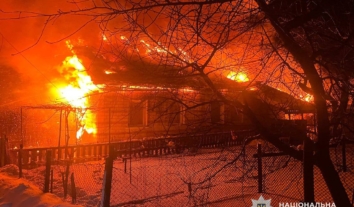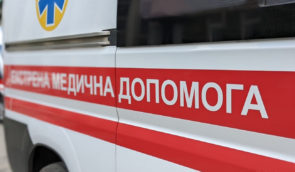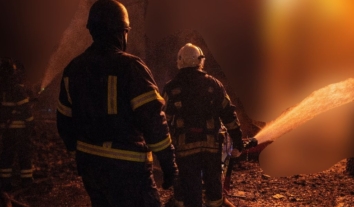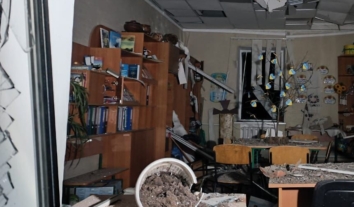Families of POWs and missing persons unite to oversee the work of state bodies in Ukraine
The families of prisoners of war (POWs) and missing persons believe that Ukraine’s government’s plan to transfer the Commissioner for Missing Persons functions to three different agencies will significantly impair the families’ ability to communicate directly with the authorities and search for their loved ones. Therefore, they plan to create an association of civil society organizations to control the agencies involved in this issue.
According to a ZMINA correspondent, representatives of more than 20 civil society organizations announced this at a joint press conference on August 14.
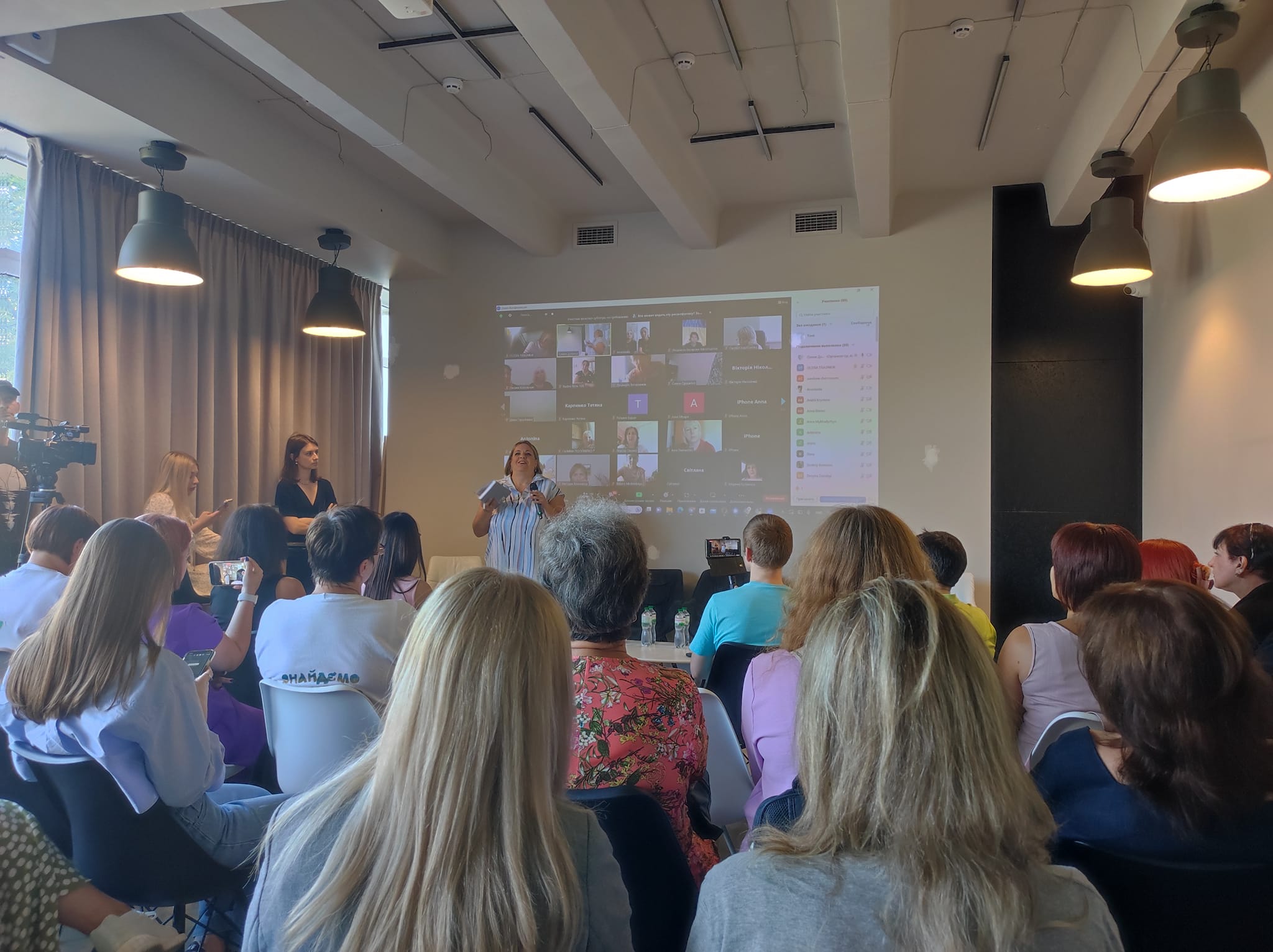 Photo from a meeting on August 14 by Olena Dobycha
Photo from a meeting on August 14 by Olena DobychaThe press conference was devoted to the government’s intention to withdraw the position of the Commissioner for Persons Missing in Special Circumstances from the structure of the Ministry of Reintegration of Temporarily Occupied Territories of Ukraine and distribute the powers vested in the institution of the Commissioner for these issues to three other agencies: The Ministry of Internal Affairs, the Ministry of Defense, and the Coordination Headquarters for the Treatment of Prisoners of War.
“We will hold a meeting as soon as possible to create an association of civil society organizations to coordinate our actions. We will constantly maintain public oversight over the work of all structures involved in the issue of missing persons. Together, we will create petitions, write draft laws, and appeal to the international community,” said Olena Dobycha, head of the NGO Polygon 56.
She added that civil society organizations will work together to resolve all issues related to missing persons, prisoners of war, and the dead.
“We are very tired of the lack of action that would bring the results we expect. Only joint work and hard work will help us resolve the issues that are painful for us,” adds Olena Dobycha.
Those at the press conference noted that there is currently a single governmental body in Ukraine that deals with the search for missing persons – the Commissioner for Missing Persons under Special Circumstances, which has representatives in each region. The transfer of its functions to three different agencies will significantly impair the ability of families to communicate directly with the authorities and search for their loved ones.
They also emphasized that since the Commissioner’s mission is humanitarian, international donors are helping him in every way possible. Transferring powers to other structures will make this impossible. Given the lack of state funding, there are risks of not receiving refrigerated trucks, machinery, and equipment for search operations, covering railway costs for storing bodies in refrigerated cars, etc.
“The Commissioner checks missing persons for involvement in collaboration and desertion before entering them into the unified register, so there is a danger that traitors could be included in the database,” Dobycha explains.
Representatives of civil society organizations were most concerned about the return of bodies with the assistance of the International Committee of the Red Cross. They are afraid that if the functions of the Commissioner are significantly reduced, no one will deal with this.
As a reminder, on August 10, the media reported that the Cabinet of Ministers was allegedly liquidating the Office of the Commissioner for Persons Missing in Special Circumstances and transferring its powers to other agencies. Ukraine’s government later denied this.
According to the Ministry of Reintegration of Temporarily Occupied Territories, on August 10, an interagency meeting was held to discuss the transfer of certain powers regarding missing persons from the Ministry of Reintegration to the Ministry of Internal Affairs, the Ministry of Defense, and the Coordination Headquarters for the Treatment of Prisoners of War.
The Ministry justified the meeting to improve the performance and functionality of the institution. After all, the Ministry of Internal Affairs is already responsible for maintaining the Register of Persons Missing in Special Circumstances. The agency also has search capabilities.
For its part, the Ministry of Defense, having access to the combat zone, can assist in the search for the bodies of the dead, and the Coordination Headquarters will work to return both prisoners and the bodies of fallen defenders.
They emphasized that the issue of eliminating the position of the Commissioner or dismissing Oleh Kotenko, its head, was not raised during the meeting. Instead, the participants agreed with Deputy Prime Minister Iryna Vereshchuk that after the Ministry of Reintegration’s functions are transferred to other agencies, preserving the existing team, its achievements, and the quality of its work will be necessary.
The Law “On the Legal Status of Missing Persons” was adopted by the Verkhovna Rada of Ukraine in 2018. The law stipulates that a missing person who went missing while performing military service due to an armed conflict or hostilities is provided with guarantees, in particular, by the Law “On Social and Legal Protection of Military Personnel and Members of Their Families.”
The law also created a system of coordination between state authorities, civic initiatives and organizations, and international partners to search for people who went missing in special circumstances. This coordination was to be carried out by the relevant commission, a permanent advisory body of the Cabinet of Ministers of Ukraine.
However, the coordination system that facilitated the search never came into operation. A register of missing persons under special circumstances, which was to be administered by a state-owned enterprise under the Ministry of Justice of Ukraine, was not created either. Thus, Ukraine could not know the exact number of people who went missing during the occupation and armed conflict.
On April 4, 2022, the Verkhovna Rada of Ukraine adopted amendments to the law to unblock the work on the search for persons missing under special circumstances.
In particular, according to these amendments, the Ministry for Reintegration of the Temporarily Occupied Territories became responsible for the search—namely, the Commissioner for Persons Missing in Special Circumstances, an official of the Ministry.
The Ministry of Internal Affairs also became the holder of the Unified Register of Persons Missing in Special Circumstances, as the MIA had all the necessary means to launch this register quickly.
On May 20, 2022, the Cabinet of Ministers appointed Oleh Kotenko as the Commissioner for Persons Missing in Special Circumstances.
His duties include coordinating the search for missing persons and resolving related issues by the Law of Ukraine “On the Legal Status of Persons Missing in Special Circumstances.”
As of July 12, 2023, the Unified Register of Missing Persons has already included information about more than 24,000 Ukrainians. There is no information about 7,000 of them. At the same time, 8,000 people on the list have been found. Adding a person to the register only confirms that a person is considered missing under special circumstances. Relatives of the missing receive extracts.
____________________________________________________________________________
ZMINA Human Rights Center, together with Ukrainian and international partners, documents incidents of enforced disappearances, detentions, and abductions of civilians in the temporarily occupied territories of Ukraine. If your relatives have disappeared or you have fears that they might have been kidnapped, please write to our e-mail address es@humanrights.org.ua. Our representative will contact you.
With the consent of the applicant, the received information will be used for appeals to national and international investigative bodies, as well as international organizations, in particular to the United Nations (UN) Committee against Torture, the UN Independent International Commission of Inquiry into the Events in Ukraine, the UN Monitoring Mission on Human Rights in Ukraine, the International Criminal Court, etc. to document and further investigate war crimes committed in Ukraine and bring the guilty to justice.

